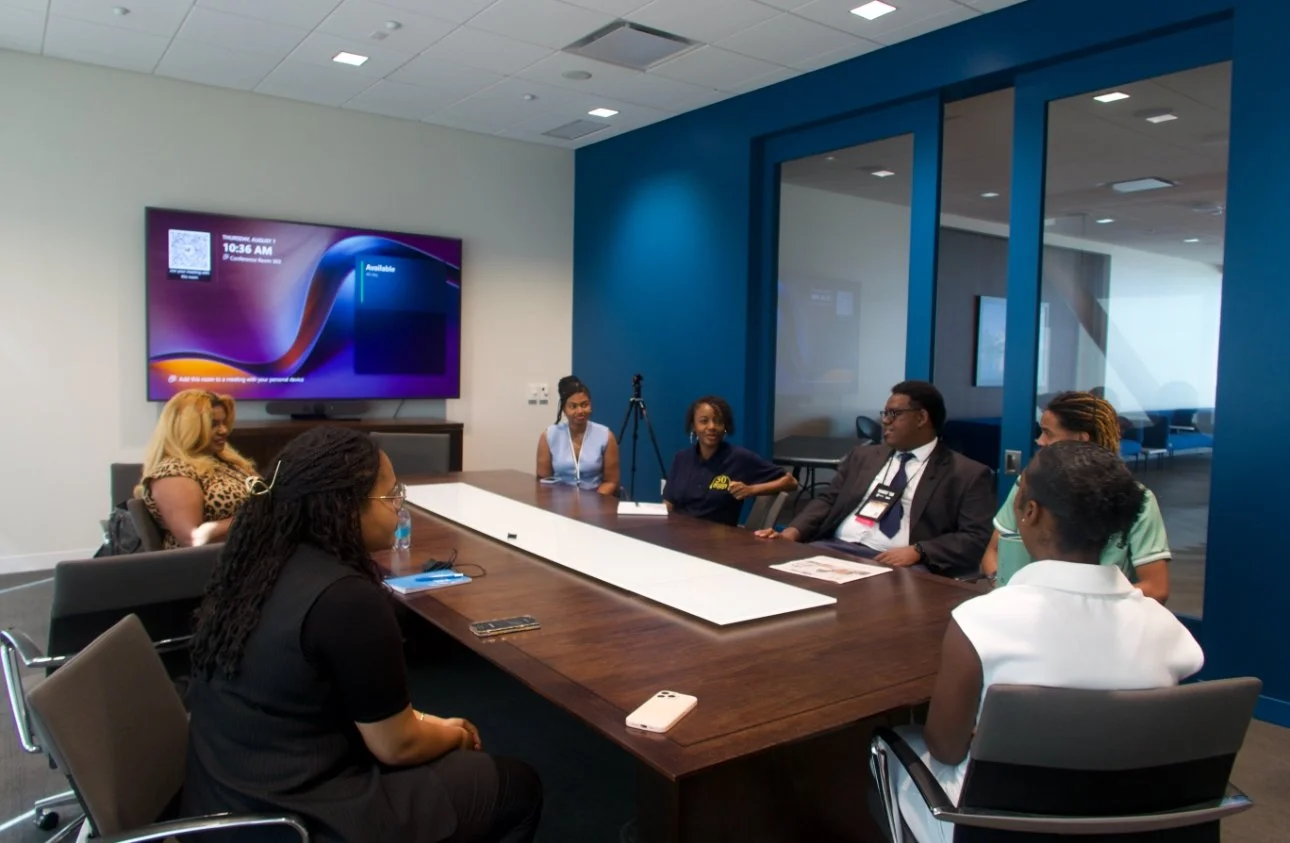University Chapters Call for Change in a Roundtable Discussion
By Morgan Norris
While voting continues for the next National Association of Black Journalists Board of Directors, student members are raising concerns about the state of university chapters.
In a roundtable discussion, collegiate representatives outlined their hopes for how incoming board members can strengthen support for student-led chapters.
Student leaders from HBCUs discussed the misconception that their chapters are inherently well-established. In reality, many are still in the early stages of development.
“Even though my chapter is at an HBCU, there was a period of over 50 years where we did not have a chapter,” said Sasha Ndisabiye from the Langston University chapter of NABJ.
“We really had to start fresh, and it was super hard for us to navigate where to start, who to contact, and try to convince our administration to invest into our chapter by telling them how NABJ could benefit our careers.”
Cierra Johnson, a Clark Atlanta University alum who helped launch her campus chapter, recalls the pressure of managing chapter responsibilities while juggling an academic load. She believes the national organization should consistently check in on the students, because they need support and community.
“There were times when I felt a little alone. Leaving it up to just the students is unfair,” she said. “You have to build a board, get students to come teach other students about NABJ, network so professionals can give advice, on top of marketing and branding with 18 credits.”
At PWIs, student chapters are grappling with a different set of challenges. Alisha Dulaney, Vice President of the NABJ chapter at the University of Texas at Austin, cited the impact of anti-DEI legislation on their ability to operate.
“Being on campus is great, but being in NABJ on campus is not the best,” said Dulaney. “A lot of legislation has stripped away our funding, because, the anti-DEI movement.”
Some collegiate members believe journalism education lost its quality after the pandemic and left many students disengaged from professional organizations.
“We happen to be here because we have a mentor who cares about us and cares about our connection with the broader journalism world. Most students at my school don’t have that,” said McGlauthon Fleming from the University of North Texas Chapter of NABJ.
Across the board, students agreed that NABJ needs a more structured support system for college chapters. One proposed solution: an ambassador program that would serve as a bridge between the national organization and individual campuses.
“It could be individual states or individual universities that have a designated person students can contact to find information about running a college chapter, but it has to be someone that is credible with time, resources, and information even to convince our administrations to bring more money to our chapters,” said Ndisabiye.
Collegiate members hope the 2025-2026 Board of Directors invests in further development of college chapters and enhances the network between universities and the national organization. Their message is clear: stronger university chapters mean stronger journalists and a stronger NABJ.
